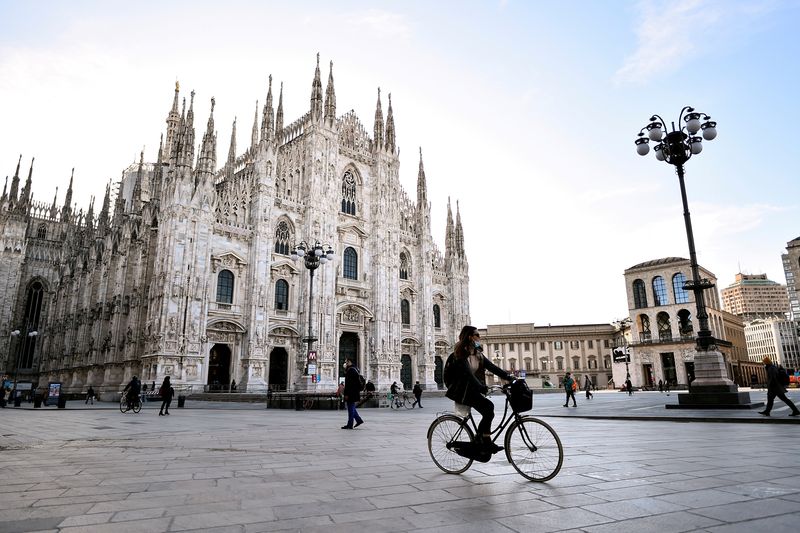By Giuseppe Fonte
ROME (Reuters) - Italy is studying measures to cut taxes on low- and middle-income workers and help families and firms cope with surging energy costs exacerbated by the Ukraine war, two government officials said.
The package would come on top of more than 30 billion euros ($31.45 billion) budgeted since January to soften the impact of sky-high electricity, gas and petrol costs which are weighing on the growth prospects of the euro zone's third-largest economy.
The government aims to reduce the so-called tax wedge, the difference between the salary an employer pays and what a worker takes home, with the benefit going to employees rather than firms, the officials said.
The Organisation for Economic Cooperation and Development estimated that in 2021 the average single worker in Italy lost 46.5% of his gross salary in taxes and social contributions, the fifth-highest ratio out of a group of 38 advanced nations.
Measures being discussed on the energy front are worth up to 7 billion euros, the officials said, asking not to be named because of the sensitivity of the matter.
The government is considering extending until September a cut of 25 cents per litre in excise duties on fuel prices at the pump which otherwise would expire on July 8, they said.
Rome could also extend to the third quarter and in some cases until December existing tax breaks and bonuses aimed at cutting fuel bills for energy-intensive enterprises and poor households.
Prime Minister Mario Draghi wants to avoid financing the package through extra borrowing, the officials said, as the European Central Bank (ECB) prepares to end a bond buying programme that kept Italian borrowing costs low.
To help fund the measures, Rome might strengthen a 25% one-off levy on producers and sellers of electricity, natural gas and petrol products which the Treasury has said will secure revenues currently worth almost 11 billion euros.
One source said the windfall tax rate could rise to 30%, potentially ensuring 2 billion euros of additional resources.

Several lawmakers are also urging the government to extend the levy to banks' energy trading profits, including those made through energy-related financial derivatives.
($1 = 0.9540 euros)